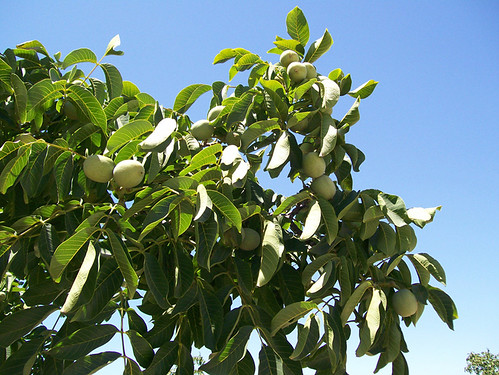
This is the seventh installment of the Organic 101 series that explores different aspects of the USDA organic regulations.
Annual organic certification fees allow certifiers to carry out their responsibilities. These fees vary according to an operation’s size and other variables. In light of that, the USDA organic cost share programs help to ensure that these costs don’t discourage those wanting to pursue organic certification. The programs make certification more affordable by reimbursing producers and handlers for as much as 75%—up to a maximum of $750 a year—for their certification costs. Eligible costs include application fees, inspection fees, travel for certification inspectors, and even postage.
“After I figured out how to apply, I found it to be easy,” said Gary Philbrick of Philbrick Farms, a Paso Robles, Calif., organization that is certified to produce walnuts. “I just save my receipts and fill out the necessary form and send it in [to the state].”
State governments administer the organic cost-share funds, appropriated by Congress under the 2008 Farm Bill. State governments, usually Departments of Agriculture, work with USDA to administer the program and distribute funds to growers, ranchers, and handlers that are currently certified to the USDA organic regulations.
Applicants submit a short form along with proof of certification and an itemized invoice to their state agencies. The state verifies these applications before disbursing funds to eligible organic operations. The program is not competitive, so anyone who is eligible may apply for a reimbursement.
“I’m a small farmer, and this program helps me a lot,” said Nancy Abramson of Rooster Ridge Farm, a 20-acre operation that devotes one-fifth of its acreage to growing everything from organic citrus to flowers to herbs. “In the beginning, I had a huge fee [getting certified], but the cost share gave me two-thirds of it back. The paperwork is nothing. I think the program is fantastic, and it makes organic farming very affordable for small farmers.”

When it comes to organic certification, there are many things small growers or handlers have to consider. Affordability is important and often at the top of the list. Organic certification not only fulfills a desired method of farming, but also meets the increased consumer demand for foods farmed and handled organically.
“It’s a huge benefit for me that I can advertise that I’m certified organic,” said Abramson. “There’s such a marketing plus, and it gets [my product] into grocery stores that require me to be organic.”
In addition to stocking grocery stores, Abramson takes pride in being able to market her products as organic when selling to consumers at the local farmers market and to the restaurants near her Santa Cruz operation. They all appreciate her organic spinach.
The organic cost share program is one of many programs that USDA offers to support emerging, transitioning, or current organic growers and handlers. Check out our National Organic Program site for more information about all things organic.

